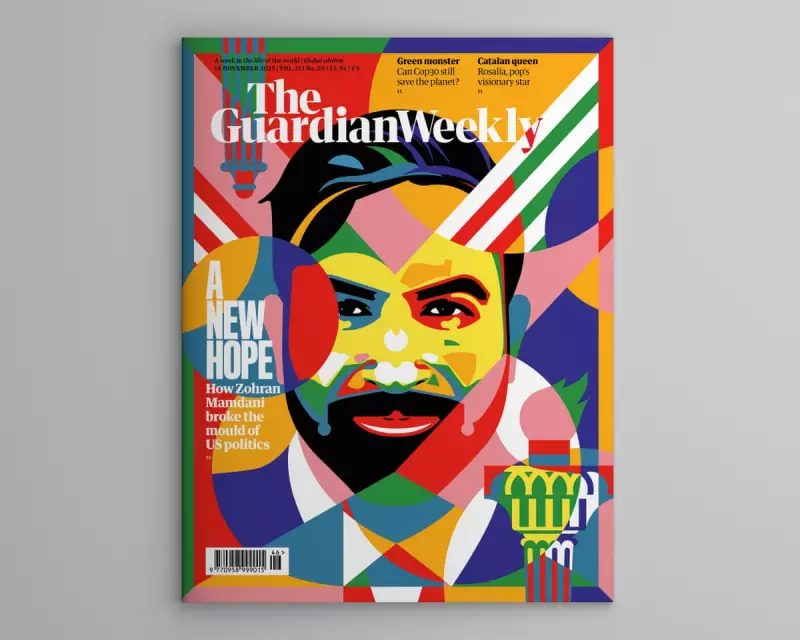
The Mamdani Miracle: A Political Upheaval in New York
A week after the polls closed, the political shockwave from New York City continues to reverberate. Zohran Mamdani, a democratic socialist, has secured an astounding, against-the-odds victory in the New York mayoral election, decisively defeating his establishment-backed heavyweight opponent, Andrew Cuomo.
As detailed in the cover story of the 14 November edition of the Guardian Weekly, Mamdani's success was not a fluke. He achieved this political miracle by mobilising an army of grassroots volunteers and donors, while forging a deep connection with voters on the issues that mattered most to them: affordability and economic justice.
A New Playbook for the Democrats?
This ground-up approach presents a potential new model for the US Democratic party. On the same encouraging night, Democrats also won key governorships in Virginia and New Jersey. Mamdani's victory offers a stark contrast and a lesson as the party reflects on a difficult year since Donald Trump swept to power.
However, his win is not without controversy. Some political commentators fear the young Muslim mayor-elect could become a prime target for Republicans. As Jonathan Freedland warns, the man whom Trump labels a "100% communist lunatic" is likely to be mercilessly targeted in the run-up to the crucial US midterm elections next November.
Conversely, Democrats within his own party believe they can harness the power of Mamdani's message on affordability, tailoring it to appeal to different voter demographics across the country. The question of who will be proven right will make for a nerve-racking year in American politics, but Mamdani has undoubtedly reinvigorated the US progressive movement.
Inside This Week's Guardian Weekly
Spotlight | The Green Monster of Cop30
As the annual climate summit opens in the Amazonian city of Belém, Brazil, Fiona Harvey reports from the front lines. Amid the expected bombast, strife, and competing interests, a critical question hangs in the air: is Cop30 still the forum the world needs to save the planet?
Spotlight | The Extraordinary Fall of the BBC's Top Bosses
Michael Savage, the Guardian's Media editor, charts the astonishing tale of the BBC's leadership crisis. What began with a report criticising the editing of a speech by Donald Trump quickly became a whirlwind, which some say is part of a much wider political story.
Feature | Why Not Everyone is Sad to See the End of USAID
When Donald Trump moved to dismantle the US Agency for International Development (USAID), many around the world were shocked. However, as Mara Kardas-Nelson discovers from on-the-ground reporting in Sierra Leone, this latest perceived betrayal was not entirely unexpected.
Opinion | A President Groped? Sadly It Isn't a Shock
After Claudia Sheinbaum was assaulted last week, her opponents claimed the event was staged. From their own lived experiences, the women Mona Eltahawy spoke to know that she didn't have to.
Culture | Rosalía, the Catalan Queen of Pop
With a towering new album about female saints, recorded in 13 languages, Rosalía has cemented her status as pop's boldest star – and one of its most controversial. She explains to Laura Snapes why society needs forgiveness instead of cancel culture.
More from the Guardian
What else we've been reading: Deputy editor Isobel Montgomery was inspired by Sarah Phillips's compendium of European traditions to incorporate more continental habits into daily life.
Sunday League Surprise: As Dominic Booth reports, there's a simple reason for Wythenshawe FC's impressive record in veterans' Sunday league football. Their over-35s squad boasts a remarkable cohort of former Premier League players, including Emile Heskey, Papiss Cissé, and Joleon Lescott, who are keeping fit and bringing a breath of fresh air to the small, community-owned club.
Other highlights from the Guardian this week include an audio interview with Nicola Sturgeon on leadership and scandal, an exclusive video interview where Volodymyr Zelenskyy states he is not afraid of Trump, and a gallery featuring the work of Jun Fujita, the man who photographed Al Capone.





